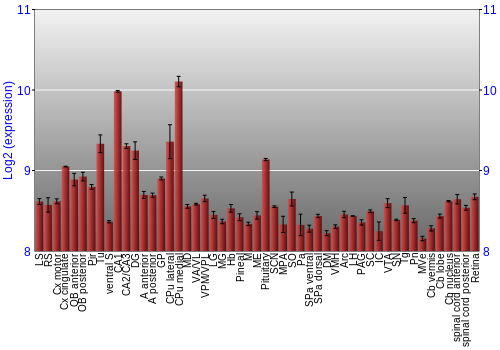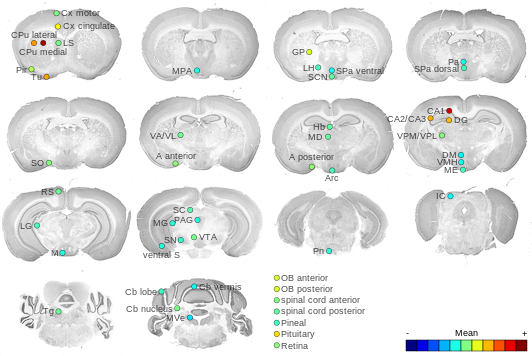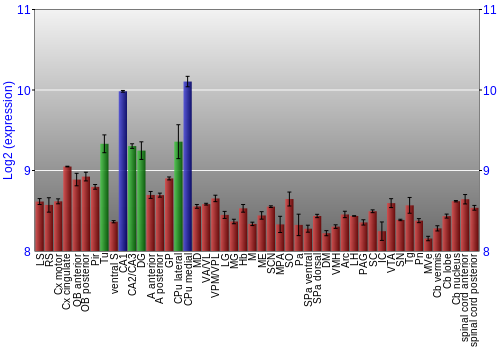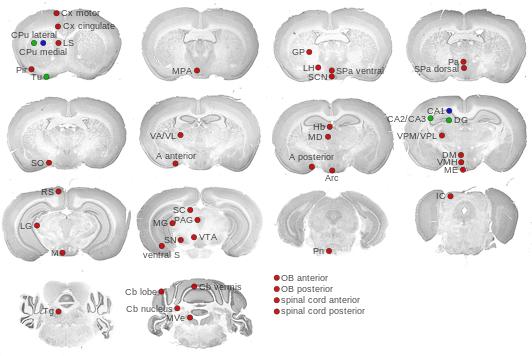BrainStars: 1434033_at: Tle1
| Affymetrix Probe set ID | 1434033_at |
|---|---|
| Gene Name | transducin-like enhancer of split 1, homolog of Drosophila E(spl) |
| Gene Symbol | Tle1 Estm14 Grg1 Tle4l C230057C06Rik |
BrainStars Expression at 51 brain regions
PDF files:
Expression Graph,
Expression Map
BrainStars classification of 48 brain regions by multi-state gene analysis
| # States | 3 |
|---|---|
| Score | -30.6301098349608 |
PDF files:
Expression Graph,
Expression Map
Other brain expression resources
Cross section images
The ViBrism cross section images (whole brain mode: beta version) were provided by the ViBrism team. A full 3-D model of the expression is available at their ViBrism site.
The ABA expression energy cross section images were obtained from the Allen Mouse Brain Atlas, Allen Instiute for Brain Science © 2008. Please refer to their original terms of use.
Links to other resources
BrainStars 1-D expression files
You can download BrainStars expression data in a table.| TSV format file | BrainStars expression in a tab-separated values format |
| CSV format file | BrainStars expression in a camma-separated values format |
BrainStars 3-D expression files
You can download this entry's BrainStars expression data putting on 3-D mouse brain models.| VCAT format file | BrainStars expression putting on a brain model. The file can be viewed with a software, VCAT, downloadable from VCAD@RIKEN site. |
| XPR format file | BrainStars expression putting on a Allen Reference Atlas brain model. You can view the XPR file with the Brain Explorer software provided by the Allen Institute. |
External links
| Entrez GeneID | 21885 |
|---|---|
| MGI ID | MGI:104636 |
| Ensembl | ENSMUSG00000008305 |
| UniGene ID | Mm.278444 |
| RefSeq Transcript | NM_011599 |
| RefSeq Protein | NP_035729 |
| Agilent ID | A_51_P199716 A_52_P328044 A_52_P330694 |
| Allen Brain Atlas | Tle1 |
| ViBrism | Tle1 |
| EMAGE | Tle1 |



